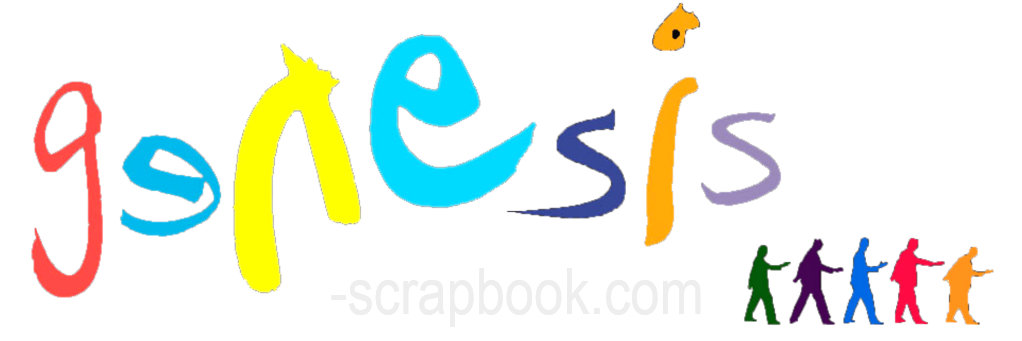
GARY O’TOOLE: REVISITED 1
In conversation with the former drummer of the Steve Hackett Band (Part I)
text: ahand83/photos: MGS
This is part one of a conversation with Gary O’Toole, long time serving member of the Steve Hackett band. Gary’s played with Steve from 2000 until 2018 and he’s travelled with him throughout the world. Gary’s been so kind to provide us with an insight in his childhood, his start as a drummer to becoming a band member and good friend of Steve Hackett’s. These days, Gary provides online drum lessons and he’s slowly but attentively working on his own material. Apart from that, and even more importantly so, he’s a dad to his teenage son and daughter.
First of all, can you tell me something about your childhood and how you became a professional drummer?
Well, it’s been interesting because we had this conversation a couple of weeks ago. Since then I started writing for my website, so that I can advertise. I’ve just been going through some of these things so it’s relatively fresh since I started to remember so much.
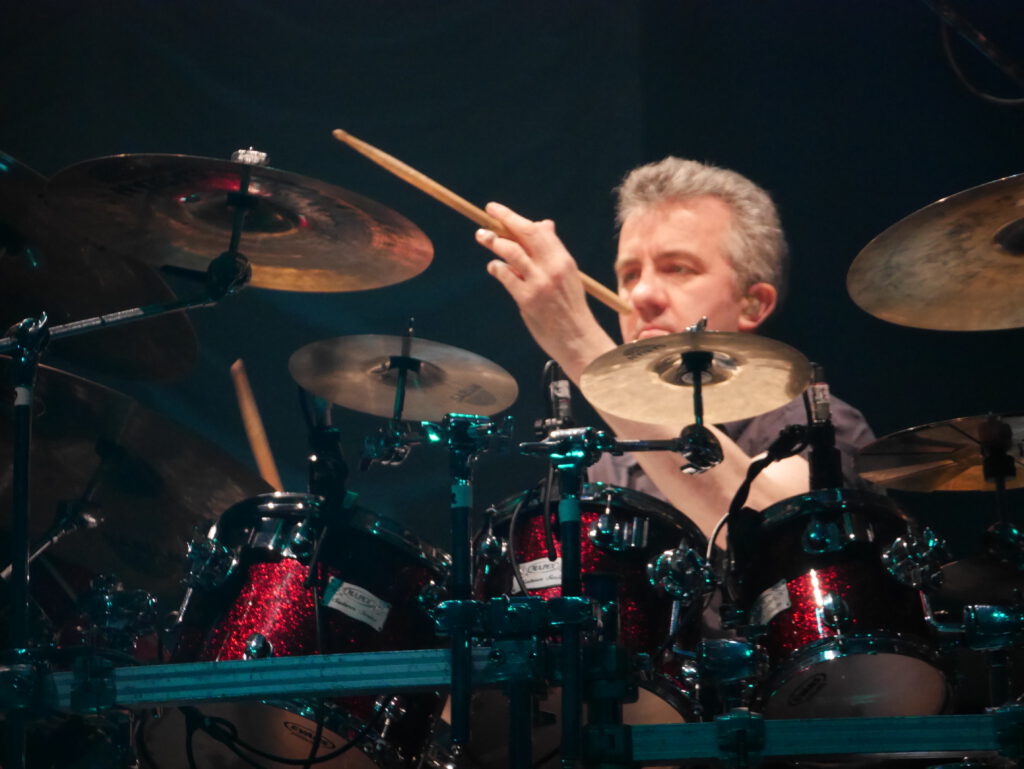
When I was young I started off singing and I didn’t realise it was such a big deal. I always thought singing was so easy that it was cheating for me. I saw a lot of people making a bigger issue about it and I didn’t really get it. When I was 4 there was a band called The Morgan James Duo who would sometimes do cover versions of songs and they were very big in the charts. They did a song called ‘It Ain’t Necessarily So’ and I used to sing that with my parents. It was interesting because I was told I was great. At the age of 6 I took some guitar lessons in school, but that didn’t go so well. After that I took piano lessons and that didn’t go well either. Both teachers wanted to teach me classical music and I had absolutely no interest in it at all, none.
Is that still the case?
Not really, no. I would not necessarily say that I naturally feel drawn to classical music but every now and again I will hear something that will capture my imagination. Some of the first things I started to write were based around the idea of using a string section rather than a rhythm section. So I find that really interesting.
When I was 10 I started playing bass with my mum and dad. They had a trio that would do pubs and clubs around north London and we would all sing. It was a real family band.
Were you born in London? Do you still live there?
I was born and raised in Islington. I now live just outside of London. There’s a little village called Stokenchurch which is kind of 7 miles west of High Wycombe. If you go west out of London you hit Heathrow and when you keep going you’ll get to where I am.
So you kind of stayed in the same area from where you grew up?
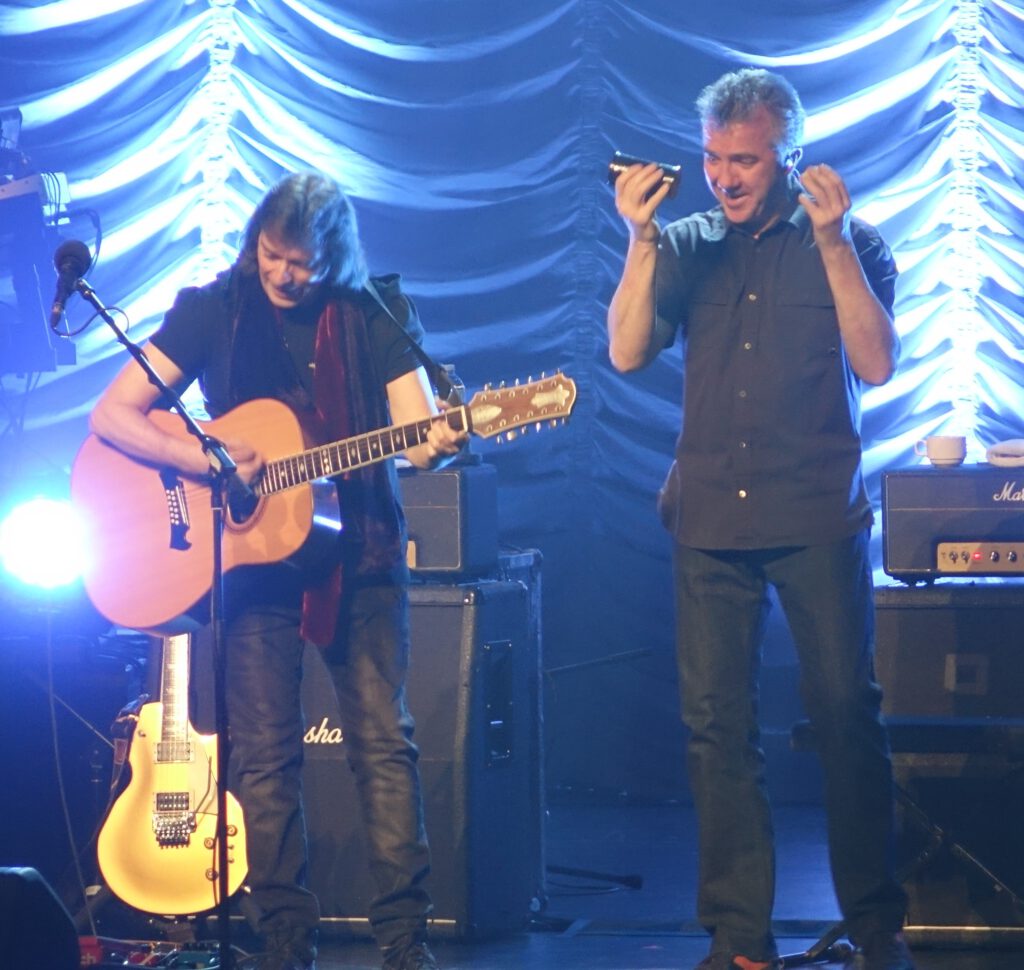
Yeah, pretty much. I took over a flat in Islington from a fantastic drummer, a friend of mine called Tony Beard. Tony played with lots of people and he was like top of the music scene in England. He played with the band Go West and went on to support Toto in the States. Then the Bee Gees came along and they asked him to join them for a tour. He also worked with Hall & Oates for quite some time. Tony rang me up one day in 1987 and he said in his cockny manner: “I’m going to the States for a little while. Would you look after the flat while I’m gone?” I happily excepted. Eventually Tony was gone for 16 years (laughs). He did a lot of work out in America. I think he now lives in New York State and he’s a gardener. He is one of the most astonishing drummers because his time is fantastic, his groove is amazing.
So your parents were both professional musicians?
Yes. My parents came over to London from Dublin. There was a big publicity campaign I remember mum telling me about. She had pictures of them flying her over. The publicity stunt was to get her to be broken out of this crate as if though she’d been stowed away in the airplane. She was then introduced to the scene and started doing television shows. Eventually, in the business you were very quickly ‘not the flavour of the month’. That’s what happened to mum.
Despite that, my parents continued doing gigs around London. They were spotted by a guy who managed a big star called Hughie Green. Hughie started a programme which was the first real sort of talent competition on television which was called ‘Opportunity Knocks’ and mum and dad were the house band on television. They did that on a regular basis until it finished round about 1969. Mum couldn’t bare to be away from us kids. My aunty was looking after us while my parents would go off to do trips. It was at that point that dad went back to doing what he’d done initially. He was a sheet metal worker doing welding. He was also very good with wood, like a carpenter. He did a lot of jobs. Generally my dad worked two jobs at all times, every day.
Was your mother a singer?
She was a pianist and she sang. Once we started to grow up mum got a job at a hotel in Park Lane in central London called the ‘Inn On The Park’ which became the ‘Four Seasons Hotel’ as it was bought by a bigger company. She worked at the Four Seasons for the best part of forty years, playing for afternoon tea. Her fans included a lot of stars like Oscar Peterson, Neal Sedaka, George Benson and more recently, before she died a couple of years ago, Carlos Santana (smiles). Carlos Santana came up and was most wonderful to her. He asked her for a request and she just played it. He kind of said it in a funny manor and he wasn’t expecting she’d know it. My mum didn’t recognise him, she didn’t know who he was. She said to me: “I was talking to your friend Carlos today…” (smiles) It was just wonderful! And I said: “Carlos, the guy I went to school with?” She said: “No, he looks kind of tinted and he sounds like he has a bit of an accent.” I found Carlos Satana on my phone and I said: “Him?” She said: “Carlos, yeah him!” (laughs) This is typical of my mum. She would impress these people but 9 times out of 10 she didn’t really know who the stars were. I found that to be a lovely trait in my mum, fairly innocent. So yeah, my parents were both musicians.
Can you tell me something about your favourite drummers, your examples, the people you grew up listening to? Who were the people that inspired you the most apart from your parents?
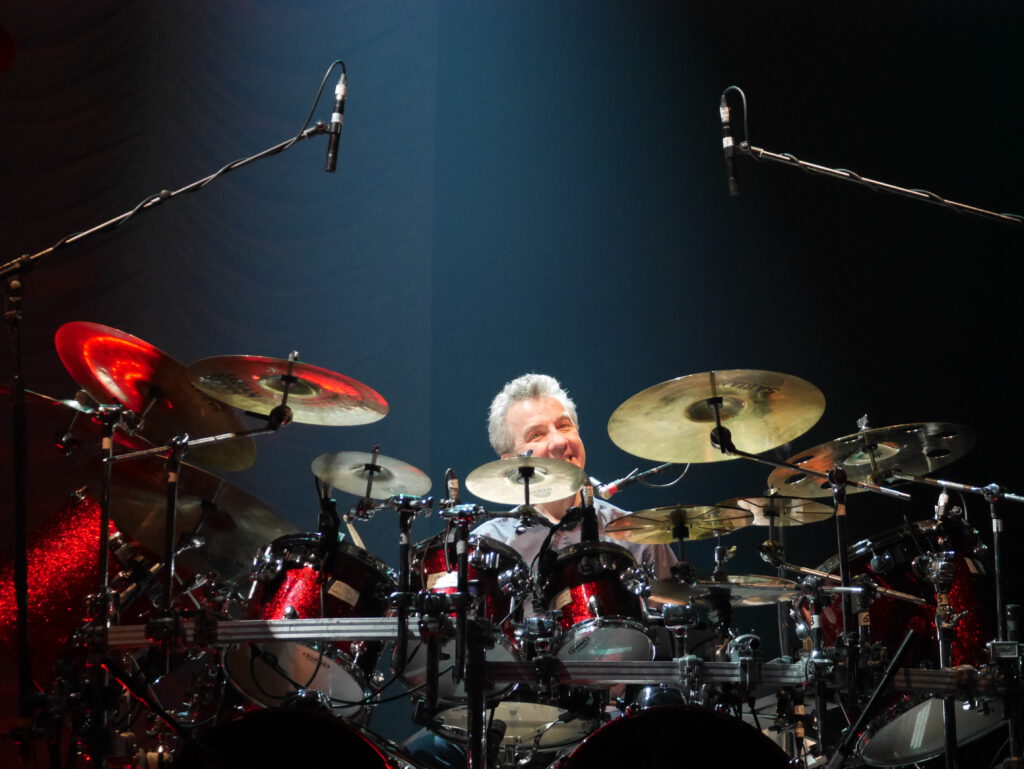
There were certain guys that would play with my mum and dad like Jimmy (Cavanaugh) and Tommy. It was only when Tommy said to me: “You really need to start listening to Billy Cobham.” I’d already been listening to a lot of jazz guys. Not because I choose that they were the best ones about, but it was that I found I got more from what they were playing. I absolutely loved what people like Buddy Rich and Louie Bellson did. I got into some of the guys that I thought were more difficult to understand which, now I look back on it, was Tony Williams in particular. Or people like Ed Thigpen, Max Roach and Art Blakey. The latter gave me a wonderful opportunity, as I got a gig supporting ‘Art Blakey And The Jazz Messengers’ at Ronnie Scot’s. Then I started getting into what Simon Phillips was doing. I started to understand so many different drummers, there were just so many things, so many people, so many styles. I took a bit from each but I didn’t realise I was doing it. Each one of them made me a better player although I still had a lot to learn.
I noticed that your technique, the way you play with your left hand, is how a lot of jazz drummers play. Is that something you picked up from your heroes? Or was it just the way you liked to play, like the best fit for you?
The guy that taught me about technique was a chap called Bobby Armstrong. Bob was using a series of techniques that had been written down, it’s called the Mueller. Sanford Mueller is the person who is actually credited with putting the system together. What he did was to document it and it was using the best techniques of the day, back in the 1930’s. Bobby showed me first of all how to play using matched grip. When you learn matched grip the two hands are doing the same thing. The dominant hand, when you’re right handed it obviously is right, will pick it up quicker. Then the other hand can ask the dominant hand what the difference is in the way you perform, the way you move. Once you’ve got that it’s easier to change when you’re normally used to traditional technique. You’ll know what the feeling of the bounce is in the left hand. Well, left in my case.
I’ve always found it a better way of playing to capture the dynamics that I want. As I was starting to play on a bigger kit I found it easier to play matched grip as I was moving around the drums. It was hard having the high-hat on the left of me, because I’d constantly be trying to get the hand over there (traditional style) so the stick can hit the drum there (points in front of him). It was just more functional playing matched grip.
You’ve played with Steve Hackett for many years. How did you get to meet Steve Hackett and how did you become part of his band?
I was working with my old friend Steve Sidelnyk who had a band called The Bombdroppers. Their drummer Steve White was out on tour and so Steve Sidelnyk asked if I could cover this gig of theirs. I agreed. We did one gig in a little club in London and it went well. There were two other acts on playing to backing tracks and one of them asked if I would like to work with them. I said: “Yeah, that sounds great.” I then got a telephone call about a month later from Steve (Sidelnyk) saying: “Look, we’ve got another gig at that club, can you do it?” I said: “Yeah, no problem at all.” Then 10 minutes later I get a call from Jeane from the other band I’d actually been with saying: “Gary, can you do the 9th of April?” I said: “No, I can’t, I’ve just told Steve Sidelnyk that I’m gonna be doing his gig.” She said: “No, me and Steve have just spoken. You’re doing both gigs.” It turned out that Jeane, the singer of Manuka (the band I was with) had worked in Steve Hackett’s office and he came down to see her play. Hackett liked what I played in both bands. Jeane called me and said: “Steve Hackett’s just asked me if I’d mind if he had a conversation with my drummer…? I said: “Well, that’s amazing!” (laughs)
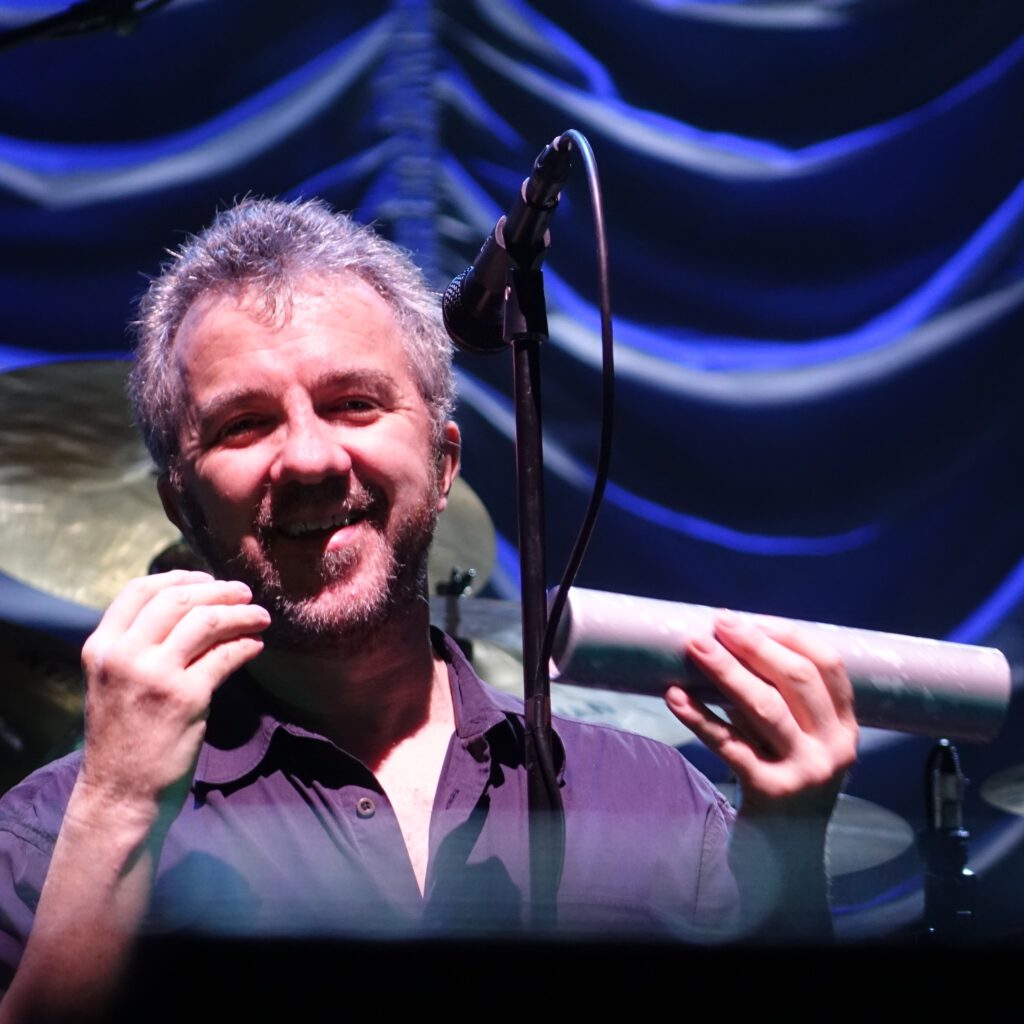
It then transpired that Steve Hackett was thinking of doing one more tour in Italy (in 2000). That was going to be the end of it. We got together and we played through a number of tracks. We also did a song called ‘Mechanical Bride’ and Hackett didn’t think it would be terribly easy for the band to get. But I said to everybody: “Ready, count it in?” So I counted it in and we started. We finished the song and Steve was just standing there mumbling: “No, no, no… I got to get a cup of tea, got to get a break.” He then walked out of the room. I said to Roger King, who had been working with him for a long time: “Is he okay?” Roger said: “He’ll be back in a minute and we’ll find out.” Steve came back in and he said: “I thought that was going to take at least two or three days.” He was really pleased the way the whole thing fell together. Because of that we went on to do other things.
TO BE CONTINUED…
